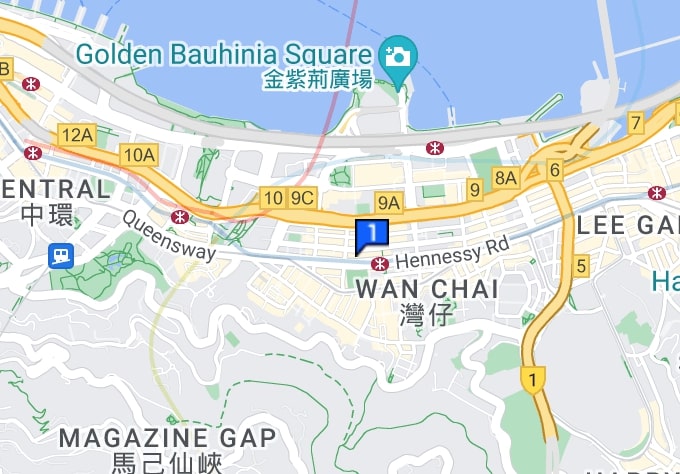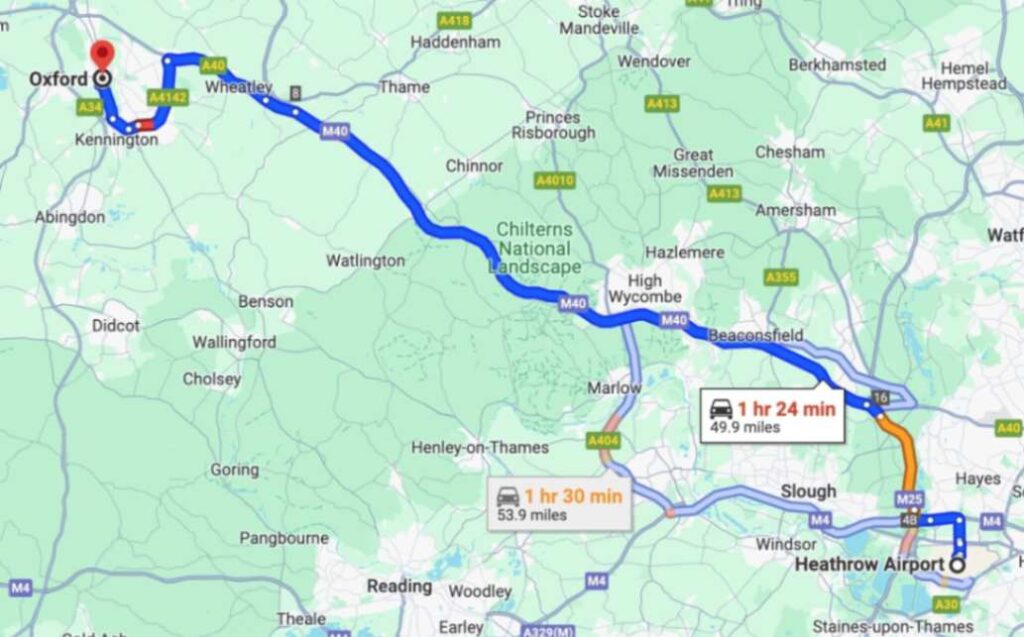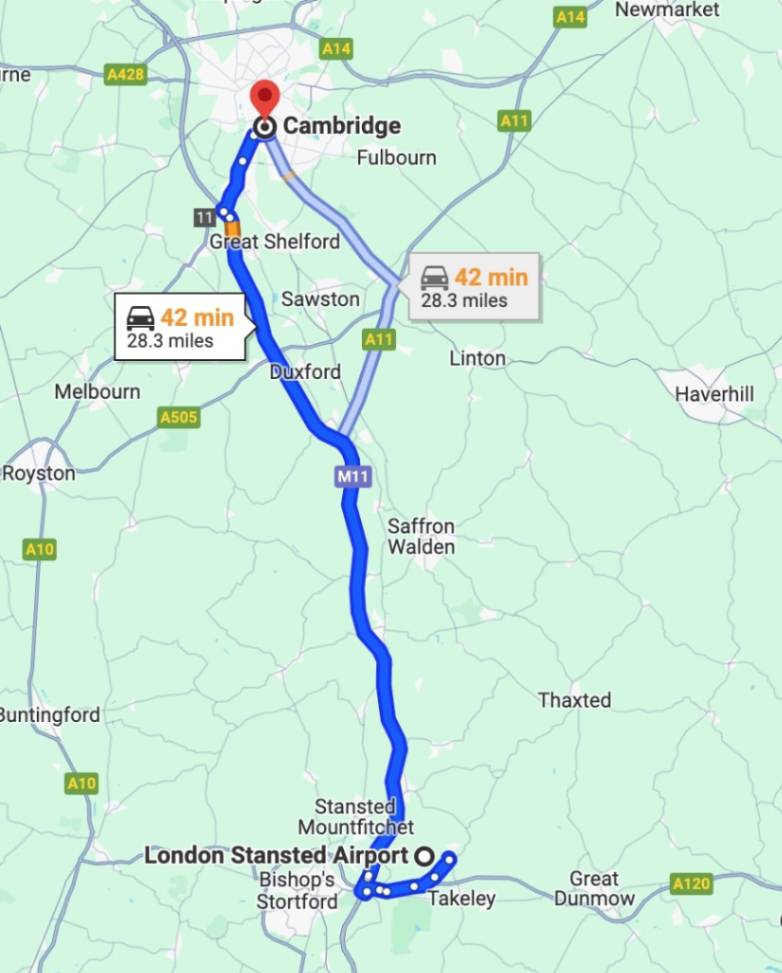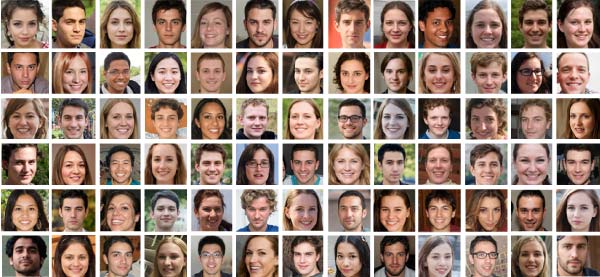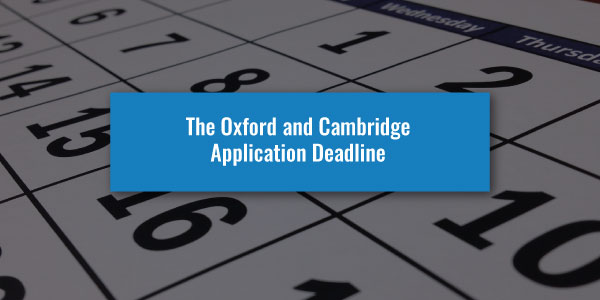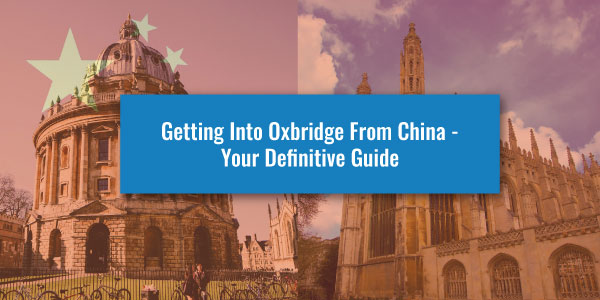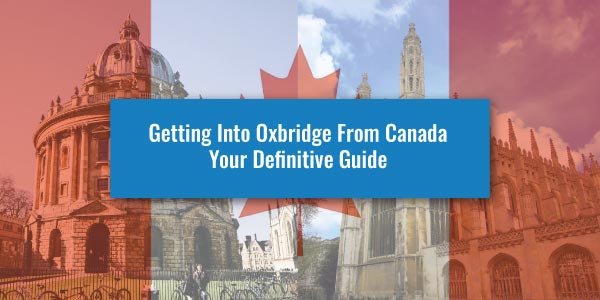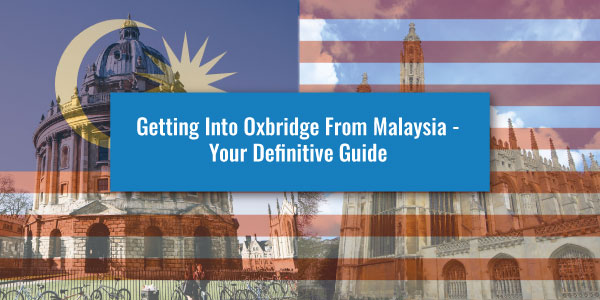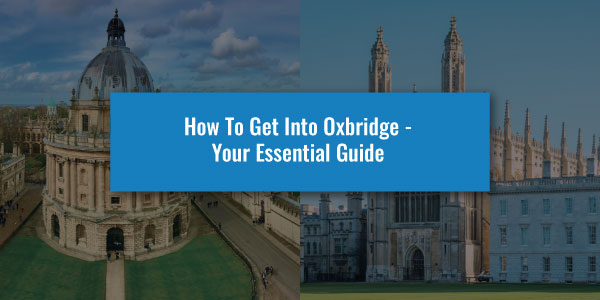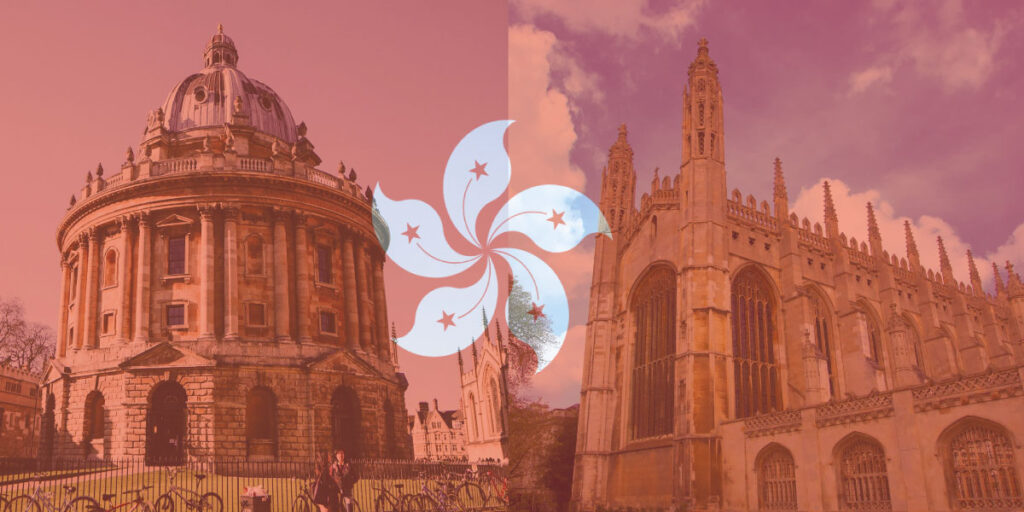
Applying to any UK university from overseas is challenging, more so for the University of Oxford and the University of Cambridge (collectively known as Oxbridge), which are two of the most competitive universities in the world. If you’re applying to Oxbridge from Hong Kong, thorough preparation is essential to create a competitive application and improve your chances of being admitted.
In this guide, we’ll explore the entire process of applying to Oxford or Cambridge from Hong Kong, from the first steps to arriving in the UK.
Along the way, we’ll follow the journey of Wai, a UniAdmissions tutor from Hong Kong who successfully earned her offer to study Medicine at Cambridge. With her knowledge of the process, you should leave this guide feeling much more confident that you know what it takes to successfully earn your offer.

Wai
Cambridge Medicine Student
Should You Apply To Oxbridge From Hong Kong?
Before you can begin preparing your university application, you need to make the decision to apply. When thinking about this, there are many questions you could ask yourself:
- Is attending university right for me?
- What do I want to study?
- What career do I want to do in the future?
- Where do I want to study? (Both university and country)
- How do I want to be taught?
- Can I get a place at the university I’m applying for?
While these questions are relevant for any university applicant, there are other questions you’ll need to consider if you plan to leave home to study in the UK. Applying to any UK university will be tough, but applying to Oxbridge will present even more challenges (as well as many benefits).
Challenges of Applying To Oxbridge From Hong Kong
Acceptance Rates
Acceptance rates at Oxbridge are some of the lowest in the world (Oxford – 13.9%, Cambridge – 16.6%) because the applicant pool for each is so large (over 20,000 undergraduate applications each year). However, these rates are even lower for international applicants, at just 7.6% for Oxford and 10.9% for Cambridge in 2023.
In 2023, 552 Hong Kong nationals applied to study at Cambridge. From these, 82 were admitted, leading to an above-average acceptance rate of 14.9%. Oxford doesn’t disclose acceptances from specific countries outside the UK, but we know that there were 1,342 applicants between 2021 and 2023. While this data is somewhat reassuring, it still shows that acceptance rates among all applicants are extremely low.
Admissions Process
The admissions process for Oxford and Cambridge is far more in-depth than most other UK universities, so this extra commitment may be off-putting or difficult to manage. Beyond the standard application form, there are additional admissions tests to sit, interviews to attend and a variety of smaller admissions requirements alongside very high minimum grade requirements.
The time spent working on this application may become very stressful and overwhelming, especially when considering the low acceptance rates. However, it’s also important to remember that not every applicant will put in the effort, so working hard will give you a far better chance of success than the majority of applicants.
Cultural Differences
Coming from Hong Kong to the UK will be a massive change for most students. While this isn’t always a bad thing, it’s important to consider that it’s common for international applicants to feel homesick for weeks, or even months, after arriving. This is especially true at Oxbridge, which requires students to adhere to certain rules and traditions that are hundreds of years old.
As well as this, the feeling of leaving Hong Kong and entering the UK may be isolating due to how few students from Hong Kong are admitted each year.
You might face difficulty connecting with your new peers due to cultural differences and homesickness, although these feelings will ease with time as you get used to your new setting and engage with your course and college peers more.
If you’re looking to meet with other people from Hong Kong, Oxford houses a dedicated Hong Kong society, while Cambridge has the Hong Kong and China Affairs Society. Plus, both universities share another dedicated society, so be sure to investigate these as they may help you integrate sooner.
Fees
Another big concern for international Oxbridge applicants is the fees for studying, which have gotten significantly more expensive over the last few years. At Oxford, annual fees range from around $300,000 (£30,050) to $490,000 (£48,620) per year. Cambridge charges between $260,000 (£25,734) to $674,000 (£67,194) per year.
Some bursaries are available to applicants, such as the Hong Kong Scholarship For Excellence, but these can be very competitive and have strict eligibility criteria.

Benefits of Applying To Oxbridge
World-Class Teaching
One of the primary reasons anyone from outside of the UK would consider applying to Oxford or Cambridge is because of the reputation they have garnered as two of the top universities in the world. Studying at Oxbridge is truly an experience you can’t get anywhere else.
Whether it’s the unique teaching style (based on Supervisions/Tutorials), the cutting-edge facilities or the access to industry experts and projects, there are many reasons why Oxford and Cambridge are considered the best universities in the UK. If the teaching style is appealing to you, you’ll be happy to hear that the reputation each university has earned is fully justified and lives up to its legacy!
The Oxbridge Experience
As we’ve said, attending Oxbridge is truly a unique experience versus other universities in the world. While this can be tough to adjust to, it’s also incredibly exciting and one of the reasons many people choose to go.
The Oxbridge Experience isn’t just about the teaching as it extends to the buildings, the accommodation, the food and the social events. There are so many traditions in place that define what it means to be an Oxbridge student, so be sure to make the most of it if you’re able to attend!
Graduate Prospects
Studying at Oxbridge gives students a massive boost in their employment options, no matter where they try to find work. Oxford and Cambridge graduates are very appealing to employers due to the perception of excellence, so they’re more likely to secure higher paid and more senior positions at an early age.
Why Apply In The UK Over Hong Kong?
Hong Kong has some truly amazing universities, including the University of Hong Kong and The Hong Kong University of Science and Technology. However, there are also many reasons why you may wish to study in the UK instead.
Whether it’s a desire to travel to a new place, a lack of suitable options in Hong Kong for the subject you want to study or the potential connections you can make at Oxbridge, your reasoning for choosing Oxford or Cambridge should be based on what you want out of your time at university, not pressure from other people or the expectation that you should attend the best university.

The same can also be said of choosing Oxbridge over other universities in the UK. However, although attending Oxbridge is a very exciting prospect, the decision to apply usually comes with a great deal of uncertainty too. Oxbridge applicants are expected to be the best of the best, and the competition for places is always tough.

As Wai says, it’s worth taking the chance or else you may end up regretting it. Choosing to apply to Oxbridge doesn’t mean it’s your only option as you’ll still be free to apply to other universities. No matter how unlikely you think it may be, making the decision to apply is the first step you need to take to achieve success.
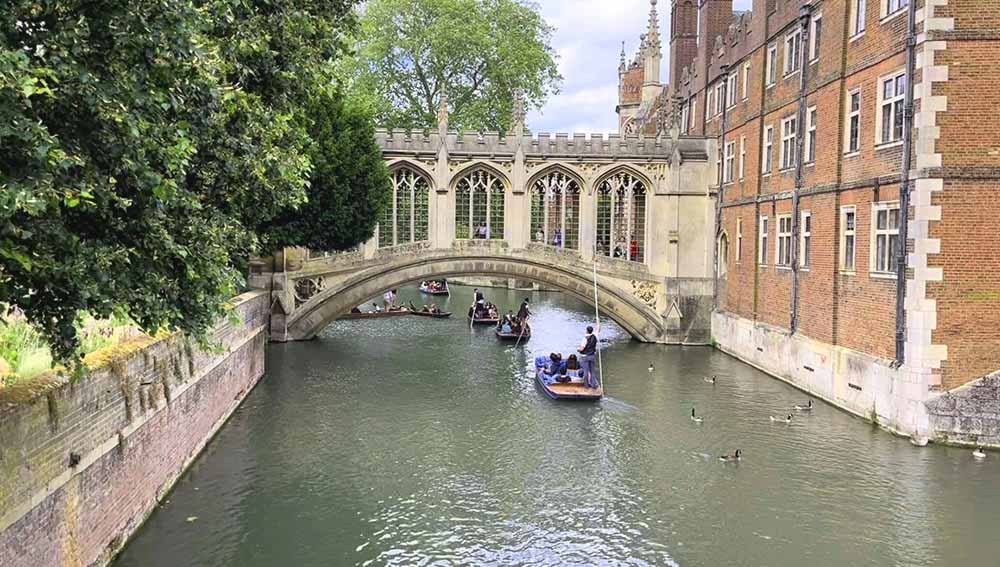
We support Oxbridge applicants across the globe to get their Oxbridge offer
Our Oxbridge Programmes are suitable for anyone who is dedicated to getting their offer at Oxford of Cambridge, no matter where you’re from. Our students have access to everything they need to prepare for each stage of the admissions process.
This includes one-to-one tuition, hundreds of preparation materials, live courses, unlimited Personal Statement/essay marking and much more. Our support is suited to your needs to ensure you get the most of it.
Discover our Oxbridge Programme by clicking the button below to learn how you can enrol and triple your chances of success.
Getting Into Oxbridge From Hong Kong - First Steps
The first step to building your application is to do your research so that you can understand all of the essential information surrounding the process. Some of the key things to consider are as follows:
Choosing Your Course
One of the first things to do is to decide what you want to study at university. If you know exactly what you want to study, then make sure that Oxford or Cambridge teach it. The list of available courses is fairly small and doesn’t feature many subjects (especially in the arts), but they cover all of the major degrees that you would expect.
Depending on what stage you’re at in picking a subject, your approach will need to be different. Ideally, you’ll already have a very good idea of what you want, which means your research will be much more focused on what the course entails and what the entry requirements are.
If you have some idea of what you want to do but aren’t sure what you want to study, the first thing to research is what degrees offer an entryway into your desired path. If Oxford or Cambridge offer one of these courses, then that’s what you should apply for.
If you don’t have any idea about what you want to study, you may need to consider if Oxbridge is actually right for you. As Oxbridge applications are so competitive, it’s essential for applicants to be fully motivated and have an invested interest in the course.
This means successful applicants will have been engaging in their subject for many years now, which you won’t be able to compete within a few months. That doesn’t mean it will be impossible to get a place on a university course, but being admitted into Oxbridge will be unlikely.

Oxford or Cambridge?
For many applicants, this is an extremely important decision. Although both universities fall under the “Oxbridge” name, the experience you’ll have at each will be different in various ways.
One difference that is sometimes stated is that Oxford is better for Humanities and Cambridge is better for STEM subjects. This isn’t really true, as you’ll get a world-class education in any subject at both universities. However, each university has its own iconic course – PPE at Oxford and Natural Science at Cambridge – that reinforces this myth. Check out our Oxford vs Cambridge guide to learn even more about how these two universities differ.
It’s important to note that no applicant can apply for both Oxford and Cambridge in the same application cycle, so you’ll have to choose one or the other.
Alternative Choices
We’ll cover this further in the UCAS application section, but every applicant to UK universities can choose up to five universities to apply to in one year. Since you can only apply to one Oxbridge university, you still have four other choices, so it’s important to consider where else you may want to apply to.
There’s no extra fee for adding more universities, and many won’t require additional steps, so it’s wise to select these as backup options. If you’re looking for other highly-rated universities, consider the G5 Universities and Russell Group Universities. Bear in mind that these all have high admissions requirements though, so you may want to choose one or two options with lower requirements as a backup plan (make sure you would actually want to attend these places).
Some applicants only apply to the UK for Oxbridge, which is perfectly fine. Although you may feel that you’re not interested in attending university in the UK other than Oxbridge, be sure to look at the available options, even if it’s just to confirm this belief. If you’re certain that you only want to apply to Oxbridge, you’re free to select that as the only choice on your application.
College Selection
Beyond choosing your university, you’ll also need to choose a college within the university, which is a process required in a select few UK universities.
Oxford and Cambridge each have a selection of 30+ colleges operating within the university ecosystem. Colleges handle many of the aspects of the university that will impact your day-to-day life, including accommodation, catering, social events and various aspects of teaching (including your Supervisions/Tutorials).
Colleges also handle their own admissions, meaning applications will be assessed by admissions tutors within a specific college rather than the university as a whole, which is why you’ll need to select one. Colleges are all different in unique, sometimes subtle ways, so be sure to research your options. Key points to consider include:
- Location
- Accommodation
- Subjects covered (not every college accepts applicants from every course)
- Values/Traditions
Your decision should be based on what you’re looking for out of a college, as strategic applications don’t tend to work in applicants’ favour. Neither university has any specific international colleges for students, so you’ll have a fairly equal chance of success at any college you apply to.

If you’ve had previous experience with any colleges at Oxbridge, it may be the obvious choice for you to pick but don’t worry if you’re starting from scratch. Our guides to Oxford Colleges and Cambridge Colleges offer a perfect starting point for your own research:
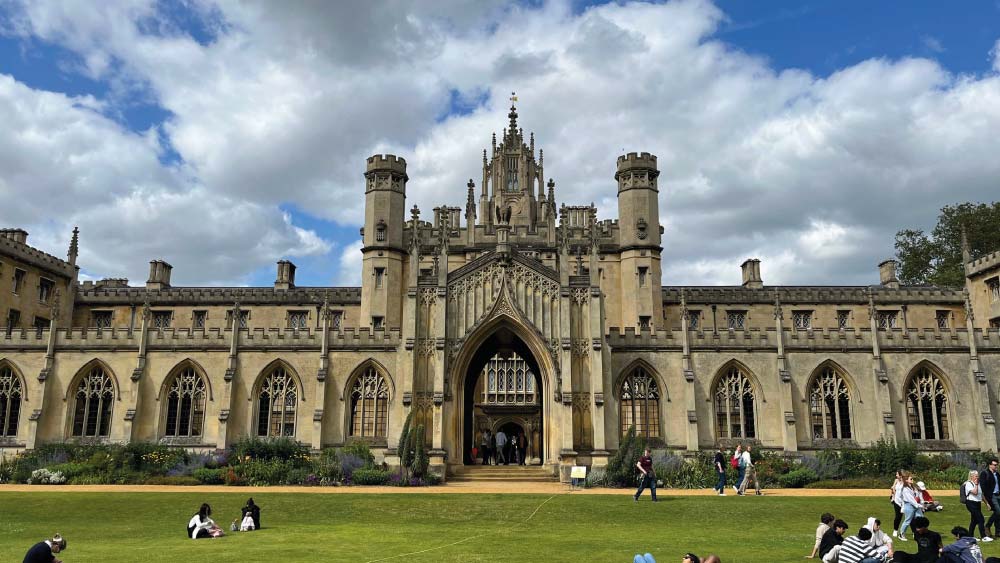
Application Support
Before we dive into the application process itself, let’s consider the kinds of support that you can access during the process. Support options are generally split into two categories:
School Support
In addition to teaching the required curriculum for your exams, your school should also be prepared to support your university applications, both domestically and internationally. Depending on the school you attend, the faculty may only have experience with domestic applications. However, other schools offer extensive support options specific to Oxbridge applicants, especially if they get a lot of students going there.
My school has extensive connections with Cambridge colleges and the Director of Studies of several colleges were invited to come speak with us in person. Hence, I was able to meet college staff myself and see if I would fit in. My school also helped me polish my personal statement as it is particularly an important element of the UCAS application for Oxbridge. I think my school already did the best they could to support my Oxbridge application.”

Not every applicant will be lucky enough to receive this level of support from their school, but that doesn’t mean that you won’t have a chance.
External Support
If you want support outside of your school, there are thankfully a lot of options available. From free online guides to a wide selection of paid services, each part of the application process is catered for. While the available free resources can be very helpful, you’ll need to pay for more comprehensive support, including one-to-one support from Oxbridge experts.
If you want support for the whole application, the best option, in most cases, is to find a provider that offers everything you’re looking for, ideally in a single package. This way, you’ll have access to everything you need in one place and won’t have to worry about receiving conflicting support from different sources. As well as this, you may not be sure if you want to work with people from the UK or from Hong Kong, as each has unique strengths and weaknesses.
If you have connections to Oxbridge through friends and family, they can also offer extremely personal support, although it sometimes helps to receive feedback from someone who doesn’t already know you.
The external tutor also paired me up with a current Cambridge student so I could have an in-depth understanding of what it is like to study at Cambridge and demonstrate my eagerness to be a Cambridge student during my interviews.”

That’s all the key things to consider before starting your application, so now let’s see what you need to do to get into Oxford or Cambridge.
Applying From Hong Kong - UCAS Applications
No matter where you’re applying in the UK, you’ll have to submit your application through the University and Colleges Admissions Service (UCAS). UCAS is an organisation that built a centralised university application system that is now recognised by every university in the UK, including Oxford and Cambridge.
The UCAS system is digital, meaning you’ll need to create an online account via the UCAS Portal. Once set up, your account allows you to submit personal details, education history, university choices, references and your Personal Statement. This only needs to be done once and the details you submit will be sent to your chosen universities once you’ve confirmed.
This means that universities in the UK don’t have specific application forms to fill out. In fact, you don’t need to contact your university choices at all before submitting, although they’re still available to ask questions and seek support.
This system is now well established in the UK, but it does have some pros and cons:
UCAS Pros
- You’ll only need to fill out your personal details and education history one time.
- The system is digital, so you can make amendments when needed until the submission deadline.
- The submission process is easy to complete anywhere in the world.
UCAS Cons
- You can’t personalise your application for each university you apply for.
- You’re limited to just five applications per year.
- You need access to a computer/phone with a stable internet connection to work on your application.
UCAS registration usually opens in mid-May and can be sent to your university choices as early as September 3rd in 2024. The standard UCAS application deadline is January 29th 2025, but all Oxbridge and Medicine applicants have to submit their application by October 15th 2024.
A UCAS application costs $276 (£27.50), which covers all of the application services offered. In 2025, this fee will be increased to $286 (£28.50).
Most people don’t face any difficulty when setting up their UCAS application, although support is available in case you have any issues that may prevent you from progressing.

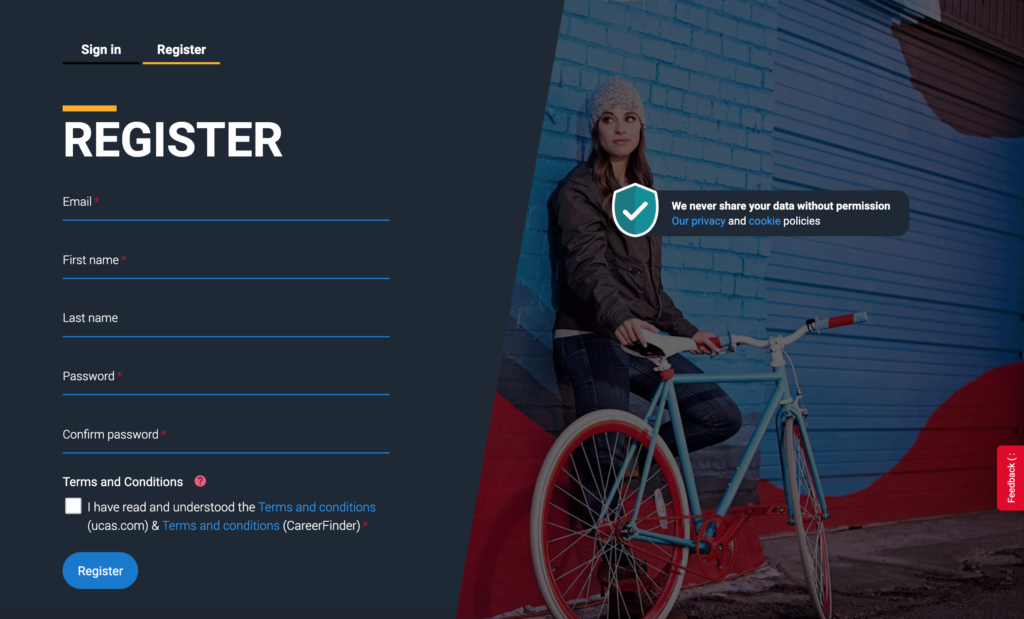
UCAS Reference
As previously mentioned, you’ll need to submit an academic reference in your application. To do so, a teacher or faculty member will need to answer three questions about your studies and abilities. Someone at your school should have experience in providing a UCAS reference, so be sure to seek their support. One of these questions addresses any special circumstances that might impact your application, so be sure to discuss with your referees any details you would like them to include.

Applying From Hong Kong - Personal Statement
The most complicated part of the UCAS application is the Personal Statement. This is a written document required that should explain the reasons that you’re a good fit for the university and course.
The Personal Statement is submitted via your UCAS application, so it needs to be completed by October 15th 2024. The UCAS portal has a dedicated space for you to write it, though we would recommend writing it on external software first, as these offer more useful features.
The maximum character count for the Personal Statement is 4,000 characters. You should use this space to write about your motivation to study this subject, your current experience within your subject and your dedication to the subject (demonstrated through extra/super-curricular experiences).
Admissions tutors mainly want to understand what you have learned from your experiences and how you have grown into a suitable candidate. This requires self-reflection, so it’s crucial to research how you can effectively convey these points in your writing. Having your drafts reviewed by a tutor or family member can be invaluable, particularly if they have experience studying in the UK.
There are very few shortcuts you can take when writing your Personal Statement as it’s meant to be specific to you and your experience. Plagiarism and excessive AI-generated content are both forbidden and will most likely be caught when you submit. If your Personal statement is rejected, your whole application will be put at risk.
However, we do suggest reading some example Personal Statements for inspiration, particularly from successful Oxbridge applicants. Our collection below covers a wide range of subjects from both universities:
Perfect English isn’t required for your Personal Statement to be accepted as the content itself is more important to admissions tutors. However, you should ensure your English is at a good standard before applying to Oxbridge as you’ll need to have high proficiency to keep up with your studies (there’s a specific test for English that we’ll cover later). Learn more about the UCAS Personal Statement in our Ultimate Guide.

While Personal Statements are important to your UCAS application, Oxford and Cambridge don’t place too much importance on them during their decision-making process. This is because they have additional measures with which to measure a candidate’s potential which are seen as more important. However, you should still put the effort in as your statement will be seen by all of your university choices.
Be aware that Personal Statements will be changing in 2025 to a more structured format. Learn more about it in our guide to UCAS Personal Statements in 2025.
Access "The Big Book Of Oxbridge Applications" For FREE
If you want to get into Oxford or Cambridge from Hong Kong, you need to be prepared for everything required of you. Download The Big Book Of Oxbridge Applications for free now to learn about the entire process through over 350 pages, where you’ll find:
- Over 40 admissions test practice questions
- 28 example Oxbridge Personal Statements
- Interviews with Oxbridge students and graduates
- Additional downloadable resources
Fill in your details below to claim your digital copy today!
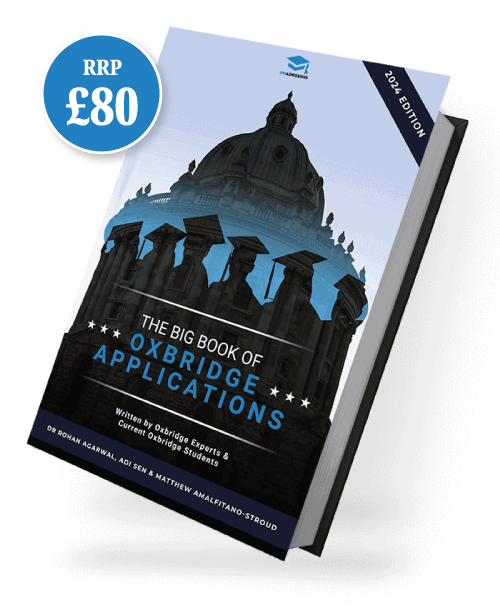
Getting Into Oxbridge From Hong Kong - Oxbridge Admissions Tests
Other than the UCAS application, there are additional application requirements for Oxford and Cambridge that are handled outside of your online UCAS portal. The first of these is the admissions tests, which are designed to demonstrate your academic potential and a more specialised manner than grades. At Oxford and Cambridge, there are a wide selection of admissions tests, including:
Oxford Admissions Tests
- Mathematics Admissions Test (MAT): Required for Mathematics and Computer Science (and joint courses)
- Physics Admissions Test (PAT): Required for Physics, Engineering and Material Sciences
- Thinking Skills Assessment (TSA): Required for PPE, Economics & Management, PPL and more
- Biomedical Sciences Admissions Test (BMSAT): Required for Biomedical Sciences
- Ancient History and Classical Archaeology Admissions Test (AHCAAT): Required for Classical Archaeology and Ancient History
- History Admissions Test (HAT): Required for History (and course variants)
- Modern Languages Admissions Test (MLAT): Required for Modern Languages and European & Middle Eastern Languages (and joint courses)
- Classics Admissions Test (CAT): Required for Classics (and joint courses)
- Philosophy Test (PhilAT): Required for Philosophy & Theology
Cambridge Admissions Tests
- Engineering and Science Admissions Test (ESAT): Required for Natural Sciences, Engineering, Veterinary Medicine and Chemical Engineering & Biotechnology
- Test of Mathematics for University Admissions (TMUA): Required for Computer Science and Economics
- History Admissions Assessment (HAA): Required for History (and course variants)
- Modern and Medieval Languages Admissions Assessment (MMLAA): Required for Modern & Medieval Languages and Asian & Middle Eastern Studies (and joint courses)
- English Admissions Assessment (EAA): Required for English
- Classics Admissions Assessment (CAA): Required for Classics
- Linguistics Admissions Assessment (LAA): Required for Linguistics (and joint courses)
- Philosophy Admissions Assessment (PAA); Required for Philosophy (and joint courses)
Oxford & Cambridge Admissions Tests
This list is accurate as of 2024. Previously, other tests were used and then removed, such as the BMAT (Medicine), NSAA (Natural Science), ENGAA (Engineering) and ELAT (English), so be aware of which tests are still active when researching.
What Are The Oxbridge Admissions Tests?
The Admissions tests used by Oxbridge are meant to match the needs of the admissions tutors, so the format and content will change depending on the subject. The most common tests are multiple-choice quizzes, though some also feature essay writing tasks and longer mathematics questions. Test content can vary from general thinking skills to subject-specific knowledge, so be sure to read your test’s specification if it has one.
How Do I Register For My Admissions Test?
The majority of admissions tests at Oxbridge are run by Pearson VUE, which specialises in computer-based testing, meaning that all of the primary admissions tests are digital and have to be taken at a registered Pearson VUE testing centre.
In Hong Kong, only one Pearson VUE testing centre is currently available; this is located at 139 Hennessy Road in Wan Chai. Due to this limited availability, home testing is also available as an option in Hong Kong.
Registering for your admissions test must be done via one of Pearson VUE’s dedicated online portals (there are several for different admissions tests) You can find the relevant portal for your exam on its official webpage. Admissions tests can cost up to $1,304 (£130) to sit, though most of Oxford’s admissions tests are free of charge.
If you’re applying to certain courses at Cambridge, you’ll have to sit your admissions test directly before your interview. These aren’t handled by Person VUE, so you will receive instructions from Cambridge directly. The tests can be sat at home and do not require a fee.
What Score Do I Need On My Admissions Test?
Oxford and Cambridge don’t set specific minimum scores for any of their admissions tests, so your application won’t be automatically disregarded if you score low. However, due to how competitive these courses are and the general standards expected of admissions tutors, you’re going to have to achieve an above-average score at minimum to have a chance of success. Ideally, you should be scoring in at least the top 30% of applicants to have a safe chance of securing an interview.
Preparing For Your Admissions Test
To create an effective preparation plan for your admissions test, you should start at least 6 weeks in advance, although we recommend giving yourself several months to prepare. People learn in different ways, so it’s important to come up with a plan that works for you. However you do it, preparation is essential for performing well on the day.
In most cases, the most effective way to prepare for your application is through practice. Specifically, you need to be working through practice questions regularly to build up your exam technique. Practice is as much about preparing yourself to handle the exam conditions as it is to help you get more questions right, so timed mock exams are a perfect way of testing yourself and finding your weaknesses.
If your admissions test features a lot of required knowledge (such as the PAT or ESAT), then revision is also highly important. Understanding the theory behind certain things will help you understand questions faster and will ensure you don’t get stuck on subject knowledge questions. Textbooks and live courses dedicated to your test are a great way to prepare for exactly what you need to know, as well as guided, one-to-one tuition.


English Language Proficiency Tests For Oxbridge
If English isn’t your first language, you’ll need to take an English Language Proficiency test to apply to a university in the UK (this applies to any university, not just Oxbridge). In most cases, you can complete this test 2 years before your application is reviewed, so we recommend taking this test earlier in the year (or the previous year) so you don’t have to worry about it when working on the rest of your application.
The deadline for submission is usually the end of July, meaning you can complete it after your UCAS application has been submitted and your offer has been sent.
There are various tests that are accepted by Oxford and Cambridge, but the most common is the International English Language Testing System (IELTS). These tests require you to complete exercises relating to reading, writing, listening and speaking, testing your proficiency in each key area of the English language.
You’ll need to achieve a minimum score to be considered, though these scores change between universities. For example, on the IELTS, Oxford and Cambridge each require a score of 7.5, with at least 7.0 in each component. We cover these tests further in our English Language Proficiency Testing guide, so be sure to check it out.


Additional Oxbridge Requirements
As well as these tests, there are two additional things that you may be required to complete.
Written Work
Some courses at Oxbridge don’t require an admissions test. Instead, they may require you to submit a piece of work to be reviewed by the admissions team (sometimes multiple pieces). This will usually be an essay or another form of written work though more specialised pieces are sometimes required for certain subjects, including Fine Art, Architecture and Music.
Oxford and Cambridge both commonly ask for work that has been academically marked, meaning something that was submitted for school work and marked. That’s not always the case, but it’s more common than any other type of work requested.
The system for submission is digital, which means any handwritten pieces need to be scanned into your computer to be submitted. You can learn more about written work, including which courses require it, in our Oxbridge Written Work Guide.
My Cambridge Application
The My Cambridge Application (MyCApp) is only required by Cambridge undergraduate applicants and acts as a secondary application form that’s used exclusively by Cambridge. You’ll be required to submit the same information that you included in your UCAS application, so be careful to ensure that all the information matches between forms.
The MyCApp also allows applicants to send a unique Personal Statement to Cambridge, though it’s not required. However, you should definitely complete this as it offers you the perfect chance to write a dedicated statement about why you should be admitted into Cambridge. You only have 1,000 characters to use, so you’ll need to plan carefully to ensure you include only the most important details.
Some applicants will also need to submit a transcript of their current qualifications, which you can get from your school. This isn’t a requirement if you’re studying A-Levels or International Baccalaureate.
The MyCApp requires a fee of $602 (£60) for any applicants not based in the UK or Ireland. The form needs to be submitted by October 22nd 2024 at the latest.
Triple your chances of Oxbridge Success with support from UniAdmissions
At UniAdmissions, we are specialists in getting applicants from across the globe into Oxbridge, UK Medicine and more. With our expertly crafted curriculum, extensive preparation materials and innovative Portal, we have developed programmes that cater to applicants of over 30 subjects across Oxford, Cambridge and more.
Discover our Oxbridge Programmes by clicking the button below to learn how you can enrol and triple your chances of success.
Getting Into Oxbridge From Hong Kong - Interviews
The last part of the main Oxbridge application process is the interviews. Interviews are held in the first three weeks of December, while invitations are sent out by email up to three weeks before. You won’t have much notice, but you should begin preparing for your interview much earlier on to ensure you’re prepared if you’re invited.
Interview invitations are sent out based on the shortlisting process, which focuses on admission test scores and predicted grades, with some consideration of Personal Statements and references. Oxford interviews roughly 40% of its applicants, while Cambridge interviews far more – around 70%.
All Oxbridge interviews are formatted as traditional panel interviews, where two to three interviewers (faculty from the college) will ask questions, present problems to solve and engage in conversation with you. Applicants can be expected to sit anywhere from one to four interviews in a standard application. These interviews last around 35 – 40 minutes.
For international applicants, most interviews are held remotely, so you won’t need to travel to the university. Oxford doesn’t host any in-person interviews currently, but certain Cambridge colleges will ask some candidates to interview on-site. Of these, some give non-UK applicants the choice of an in-person or remote interview, while Emmanuel and King’s College require all applicants to attend in person, although they will consider exceptional circumstances.
Timings are adjusted where possible to accommodate your time zone, so you can expect to attend your interviews in the afternoon. Oxford uses Microsoft Teams for interviews, while Cambridge uses Zoom. Some interviews require you to use a virtual whiteboard, so ensure you’re prepared for this.
When preparing for your interview, practice and research are the two key things you need to do. Firstly, you need to understand what’s expected of you in an Oxbridge interview and how you can present yourself in the right way. We’d recommend reading the experiences of Oxbridge students in their interviews.
Once you’ve got a better understanding of that, you should aim to practice as much as possible, especially within realistic mock interviews. These are best done at school or with an external service, as mock interviews with friends or family can feel less formal and won’t properly prepare you for the pressure of a real interview.

On the day of the interview, it’s crucial to have a quiet, well-lit location with a stable internet connection. Ensure you have a good-quality microphone and camera for effective communication with your interviewers. Additionally, make sure you have the necessary software installed to join the virtual meeting room. If you don’t have access to such a space, ask your school to provide one.
Most importantly, you need to be mentally prepared for the interview so try to keep calm beforehand. Being nervous is natural as it’s a very stressful time, but avoid panicking as this could cause you to freeze and make mistakes easier.

If you aren’t accepted by the college that you applied for, you may be asked to attend interviews at a different one in January. This is known as the Winter Pool at Cambridge and is a sign that Cambridge wants to find a space for you. These interviews are the same as the previous ones, although different colleges will approach their interviews in slightly different ways.
Once you’ve finished your interviews, your application is over for now. There are no more steps to take until your offer comes in, so let’s find out what you need to know about that…

Getting Into Oxbridge From Hong Kong - Your Offer And Beyond
Oxford and Cambridge release their offers in late January via email (a letter will also be sent afterwards). Your offer confirms the details of your application, including the grade you’re required to meet to be admitted.
Oxford and Cambridge expect any applicants who wish to attend to accept their offer within a few days of receiving it. This is done via your UCAS Portal, which will give you the option to accept your offer as your primary choice, your insurance choice or reject it. However, in most cases, your offer will be withdrawn if you don’t accept it as your main choice by a set date.
In addition to your offer from the university, you’ll also receive an offer confirmation from your college. This will feature a couple of tasks that need to be completed, the process varies between Oxford and Cambridge and will be outlined in your offer.

Receiving your offer is an incredibly exciting moment, but if you don’t get an offer it can be the exact opposite. It is fine to be disappointed, as it’s not what anyone wants to happen. However, remember that it’s not all over yet. If you applied to other UK universities, you still have up to four more chances to get a place. And if not, you can always try again in the next admissions cycle.
After this, the process isn’t over yet. While you may have received the offer, you still need to meet the grade requirements, fulfil any outstanding conditions, and start planning your move to the UK.
Completing Your Exams
Depending on what exams you’re taking, you may need to achieve a different minimum grade based on the grade boundaries. However, one thing remains consistent throughout – you need to be well prepared for your tests to ensure you get the required grade.
Oxford Entry Requirements - Hong Kong
HKDSE: Primarily Grade 5*55 to Grade 5*5*5 in three electives from Category A, plus Grade 5 in Core Maths and Core English (some courses allow Grade 4). You’ll sometimes be expected to achieve 5* in the subjects relevant to your course. Some courses will accept Grade 5 in three electives from Category C.
A-Levels: AAA – A*A*A
International Baccalaureate: 38 – 40 (with 766 or 776 in Higher Level)
Cambridge Entry Requirements - Hong Kong
HKDSE: Grade 5*55 – Grade 5*5*5 in three electives, plus Grade 5 in all core subjects (with Grade 5* in any relevant core subjects). One or more 5* grades may be replaced by a 5** grade in some cases.
A-Levels: A*AA – A*A*A
International Baccalaureate: 40 – 42 (with 776 in Higher Level)
Your schoolwork will be extremely important during this time, so be sure to continue your studies to ensure you achieve the grades you need. After exams are finished, all you’ll need to do is wait (unless you haven’t completed your English Language Proficiency test yet).
Depending on which qualification you completed, your results will come between July and August, so you’ll have a few months to wait. However, once you’ve got your results in your hand and you know if you’ve secured your place, a huge pressure will be taken off of you.

Although it’s exciting to think about having your place confirmed, it’s also important to consider what you should do if you don’t get the grades you need. Depending on your situation, you may have other offers you can accept, either at home or in the UK.
If not, may wish to apply through UCAS Clearing, which provides a second chance for applicants who didn’t get an offer or who didn’t get the grades they needed. While spaces and university options are limited (you won’t find Oxford or Cambridge offering spaces through clearing), it still gives you a chance if you really want to study in the UK this year.
If none of these options suits you, you can either re-apply next time or go down a different route and begin your career another way (e.g. apprenticeships, entry-level jobs).
If you have secured your place, congratulations! Now that you know you’re going to Oxford or Cambridge, the final step is to prepare for your new life in the UK.

Leaving Hong Kong For Oxbridge
There’s a lot to consider when moving to a whole new country and even more so when you need to prepare to study at one of the world’s most intensive universities at the same time! Here are some of the most important things you’ll need to prepare before your studies start in September.

Visas
Although Wai has a UK passport and didn’t require a visa most applicants from Hong Kong will need to get one. You’ll need to apply for a Tier 4 (General) student visa, which you can get if you’re over the age of 16 and are able to fulfil all of the requirements.
With this visa, you’ll be eligible to enter the UK up to one month before your course starts, meaning you’ll be able to move between late August and late September.
Requirements for the visa include a confirmed place at a university, a high level of English proficiency and evidence of your accommodation/financial capability. You’ll also need to attain various documents, including a passport, evidence of funding, confirmation of Acceptance for Studies (CAS) and assessment documentation.
In most cases, you’ll also need to complete a Tuberculosis screening as Hong Kong is featured on the list of countries where this is a requirement. If any documents aren’t already in English, you will need to pay to have them translated.
Medical Requirements
As mentioned earlier, you’ll need to undergo a Tuberculosis screening. Additionally, it is recommended that university students get a meningitis vaccination, as they are at a high risk of contracting this disease.
Scholarships
In some cases, you may wish to seek a scholarship if your financial situation would not allow you to otherwise study at Oxbridge. There are many options available from the universities, private organisations and the government. One such scholarship awarded to Wai helped her pay for her tuition fees and living expenses to attend Oxbridge.

Travel Arrangements
To get into Oxford or Cambridge, you’ll need to book flights to arrive in the country. From the Hong Kong International Airport in Chep Lap Tok, you’ll be flying to either London Heathrow for Oxford or London Stansted for Cambridge.
From the airport, you can arrange either taxi or coach travel to enter the city. The journey from Heathrow to Oxford takes roughly 1 hour 30 minutes, while Stansted to Cambridge only takes about 30 minutes.
Packing
Packing can be a difficult task, as this may be the first time you’ve lived by yourself. It may feel like you need to pack everything you own, but this isn’t the case. It’s smart to not bring too much with you as this will make the journey more stressful.
Be sure to pack suitable clothing for the UK climate, which is generally much more mild than in Hong Kong (though hot days aren’t uncommon in the summer). Also, pack any necessary technology, books, or equipment for your course (ensuring they meet safety standards for UK air travel), although some items may need to be purchased upon arrival. You may also wish to bring something to remind you of home.
Larger items like bedding, kitchen accessories (if you plan to cook your own food) and bathroom amenities can be bought when you arrive and aren’t necessary to bring with you on the plane.
Saying Goodbye
While you’ll be excited to leave, it’s also a sad time as you’ll be leaving your loved ones at home. This is already difficult if moving to a university within Asia, but the UK is much further away, making visits more difficult and less frequent.
Because of this, you should make the most of the time at home you have remaining. Aim to see everyone you care about before going so you can say your goodbyes and reassure them that you’re going somewhere great. While it’s sad to say goodbye, everyone will still be happy for you as you’ll be getting some of the best education in the world.
Most importantly, this isn’t permanent. Usually, you’ll still have a few chances each year to visit home, mostly during the winter and summer breaks. Plus, you’ll have the option to video call your loved ones whenever you like, although keep time zones in mind so you don’t try to call during the middle of the night in Hong Kong!

Adjusting To The UK
Finally, it’s important to consider what will happen when you arrive in the UK. For some, the transition will come naturally and allow you to start having fun and working hard straight away. However, others may struggle with homesickness, isolation and confusion about the new place they live. Moving to the UK is a big cultural shift and can take some getting used to, so here are some ways to help yourself through this initial phase.
Join Societies
Oxford and Cambridge offer a wide variety of societies and sports teams for students, including the aforementioned Hong Kong societies. We recommend joining at least one, so explore the available options, including those related to your subject and other interests you may have.
Join in College Activities
You may be reluctant to do so but throwing yourself into some activities run by the college can help you warm up to your new home and peers. One of the main events for new students is Freshers Week, which usually takes place just before classes begin.
Fresher’s Week is host to a wide variety of activities, events and parties for students to be welcomed into the university. International student events are also held, so these will be a great chance to speak with others who are feeling the same way as you.
Explore
Even if you don’t want to take part in major activities straight away, it will still do you good to explore your new home and discover what it has to offer. Taking walks will help you find new places, offer a relaxed form of exercise and will give you some fresh air to help you think.
Don’t Stress About Work
In your first few weeks, you might feel the urge to dive into your studies right away. You may have some initial tasks that need doing, but you won’t be given a full amount of work at this stage in the course, so don’t stress yourself out further by getting wrapped up in your studies. Take some time to enjoy yourself, as you’ll soon have a lot of work that needs doing!

That covers the essential information you need to know about applying to Oxford or Cambridge from Hong Kong. This guide has only scratched the surface of the Oxbridge application process, so be sure to continue your research with our library of Oxbridge application guides. Before we finish, here’s Wai’s closing piece of advice:

We hope this guide has been helpful to you, and we wish you the very best of luck with your application. If you want to discover how we can drastically improve your chances of getting your offer, please visit our Oxbridge Programmes page and discover our truly effective support.
We support Oxbridge applicants from all over the world to get their Oxbridge offer
Our Oxbridge Programmes are suitable for anyone who is dedicated to getting their offer at Oxford of Cambridge, no matter where you’re from. Our students have access to everything they need to prepare for each stage of the admissions process.
This includes one-to-one tuition, hundreds of preparation materials, live courses, unlimited Personal Statement/essay marking and much more. Our support is suited to your needs to ensure you get the most of it.
Discover our Oxbridge Programme by clicking the button below to learn how you can enrol and triple your chances of success.

